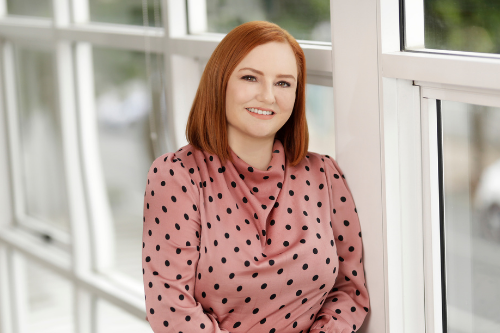

CHU Underwriting – which immediately implemented its catastrophe plan following the magnitude 5.9 earthquake that hit near the Victorian town of Rawson on September 22 – bears witness to both the challenges and opportunities faced by strata insurance stakeholders. Here chief executive Kimberley Jonsson (pictured) talks about COVID-19, the hard insurance market, and the agency’s relationship with broking partners.
“The pandemic lockdowns have meant serious challenges in getting owners back on their feet when they have to make a claim,” stated Jonsson, whose camp is the sponsor of the specialist brokerage of the year prize at the upcoming Insurance Business Australia Awards. “The lockdowns have been problematic, limiting access to identify and rectify building defects, which are a major issue in Australia, particularly for new builds. Lockdowns have also delayed normal claims repairs, often limiting activities to necessary make-safe work and deferring non-safety repairs.”
With repairers, valuers, and defect and safety inspectors having limited access, the CEO said the consequence is possible delays in carrying out repairs to damaged strata properties, which she highlighted may be a property owner’s home or investment.
Following the earthquake (which was described as the largest in Victoria post-1900), for instance, the state’s lockdown and industry restrictions “complicated the process where only ‘urgent and essential work’ could be undertaken,” Jonsson pointed out.
She noted: “All cases where safety was an issue were notified to either VIC SES (Victoria State Emergency Service) or CHU as a matter of urgency. We ascertained which of our panel builders and assessors were best placed to serve regional customers, which was important in terms of speed of support and working through restrictions on trades being able to move from metropolitan into regional areas.”
Additionally, to streamline the claim lodgement and triage process, CHU created a specific earthquake claim submission form, which was designed to be completed by each affected lot owner and then consolidated into the claim submission for the strata property. The form was sent to all broking partners, while the agency also used policy data mapping to identify and contact brokers in the worst affected areas.
“Our streamlined claims triage process allows us to continually prioritise any rectification work based on severity of damage and impact to the insured,” said Jonsson. “We will work closely with customers who have suffered insured damage but where the work is not deemed ‘essential’ in nature, ongoing communication will be the key as there will be some delays in remedial work being carried out during lockdown.”
Meanwhile, the global health crisis is proving to be a source not only of difficulties but also of opportunities.
The CHU chief told Insurance Business: “COVID-19 has seen the rental market under siege with financial hardship meaning more vacant strata apartments. However, even with possible reductions in rental income streams for investors and some owner occupiers impacted by the rising unemployment, as strata owners they are still required to have residential strata insurance, as it’s compulsory in Australia.
“Strata owners may be struggling to continue adequate cover for their property. This is an opportunity for brokers to help by providing advice on how they can reduce their premium costs while still feeling confident they are properly covered for disasters and misfortunes.”
Jonsson added that CHU’s relationship with brokers remains strong, a testament to which is the company’s Net Promoter Score results earlier this year.
“In this difficult market,” she asserted, “it is our chance to do our best in helping brokers. We work closely with our established relationships, to place new or maintain existing cover. We have seen insurers reducing their risk appetite and even exiting certain markets. Getting multiple quotes, let alone one quote, can be difficult in a hard market where the risk appetites have changed.
“This is a tough time for brokers and their clients. But with the challenges come opportunities for CHU and its offshoot Flex Insurance. We have a consistent and sustainable approach to underwriting, looking at ways to work with brokers to provide solutions rather than decline to quote or renew. This approach to underwriting is important to providing cover throughout different market cycles, and brokers appreciate our consistent support.”
CHU – which, in response to the pandemic, has launched a hybrid working model called ‘FuCHUre of Work’ – does not anticipate any softening in the strata insurance market before the end of 2022. Under such circumstances, Jonsson believes underwriting agencies, which provide insurance products and services for specific classes of risks, play a crucial role.
Jonsson declared: “Brokers benefit from the focus and expertise of a specialist underwriting agency. They can have confidence in obtaining tailored insurance solutions to cater for a niche or unique market’s needs. The growing strata market is a great example of where the insurance must fulfil specific state and territory strata legislative requirements. It’s beneficial to have a team of strata-focused underwriters and claims consultants working with you in a hard market or on complex risks.”
This year’s Insurance Business Australia Awards will take place virtually on November 12. The event will feature the exclusive stream of the awards presentation, as well as online networking opportunities such as peer matching and a live chat. You can register here.
